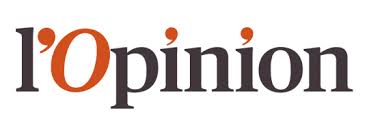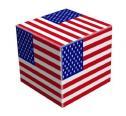United States of America
Despite polarized domestic politics and social tensions, the United States remains a major player in international relations, on the economic, military and diplomatic levels.
Related Subjects



The United States' Midterm Elections
Audrey Pulvar welcomed Laurence Nardon to I-télé on "On ne va pas se mentir" to discuss this year's midterm elections in the United States.


BFM BUSINESS: Does the post-Obama era begin today?
The issues from the United States midterm elections explained by Laurence Nardon on Fabrice Lundy's TV show "Les décodeurs de l'éco" on BFM Business.


L'opinion: Barack Obama Reduced to Lame Duck
Laurence Nardon, head of the United States program at IFRI sits down with Gilles Sengès to discuss the midterm elections and the Obama administration's politics.


BFM BUSINESS : International Current Events
Laurence Nardon, head of the United States Program at Ifri, joined Frabrice Lundy on October 4th on "Good Morning Weekend" on BFM Business. She discussed major current events including the Brazilian presidential election, the American fight against ISIS and the protests in Hong-Kong.
The end of globalization?
Michael Lind, Policy Director of the Economic Growth Program at the New America Foundation in Washington, D.C, was the guest of the French Institute of International Relations (IFRI) on September 29th 2014. In this video, he discusses the evolution of globalization.
The end of globalization ?
Michael Lind, Policy Director of the Economic Growth Program at the New America Foundation in Washington, D.C, was the guest of the French Institute for International Relations (IFRI) on September 29th 2014. In this video, he analyzes the major economic trends post-2008, and forecasts the end of globalization.


The United States and the World: what can we expect in the near future?
Michael Lind,of the New America Foundation, visited IFRI on September 29, 2014 for a seminar on "the beginning of a new pollitical term in Washington". In this video he disccusses the constraints on U.S. foreign policy, notably in its fight against ISIS in the Middle East.
What major trends in US politics or party ideology do you see happening over the next generation ?
Michael Lind, Policy Director of the Economic Growth Program at the New America Foundation in Washington, D.C, was the guest of the French Institute for International Relations (IFRI) on September 29th 2014. In this video, he discusses the evolution of US politics and party ideology.

The United States and the World: what can we expect in the near future?
|
Michael Lind, Policy Director of the Economic Growth Program at the New America Foundation in Washington, D.C, was the guest of the French Institute for International Relations (IFRI) on September 29th 2014. In this video, he discusses the limits and challenges of US foreign policy, particularly regarding the ongoing conflict against ISIS in the Middle East. |
|---|

FRANCE CULTURE : Obama's War
Almost 7 years ago, Barack Obama was elected on a promise:to end wars. Just as the wars in Iraq and Afghanistan are winding down, Barack Obama announcd this week that America will begin another war against terror, this time in Iraq and Syria. Why does the American president feel the accute need to act? How can the coalition with Arab countries and Euorpe work?
Support independent French research
Ifri, a foundation recognized as being of public utility, relies largely on private donors – companies and individuals – to guarantee its sustainability and intellectual independence. Through their funding, donors help maintain the Institute's position among the world's leading think tanks. By benefiting from an internationally recognized network and expertise, donors refine their understanding of geopolitical risk and its consequences on global politics and the economy. In 2025, Ifri supports more than 80 French and foreign companies and organizations.









